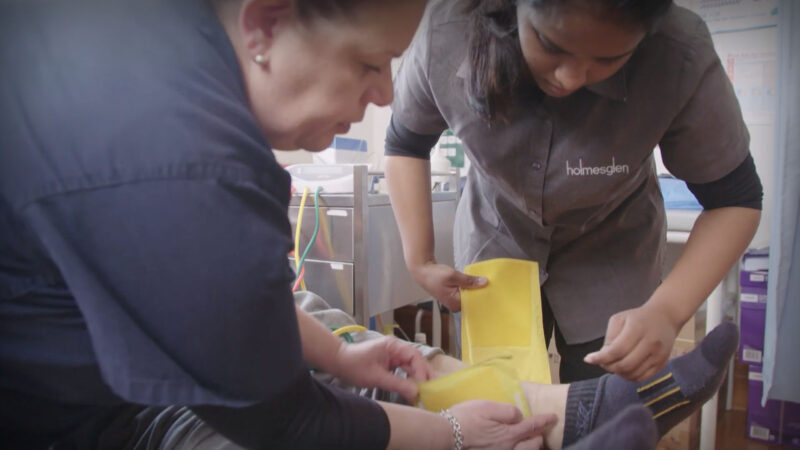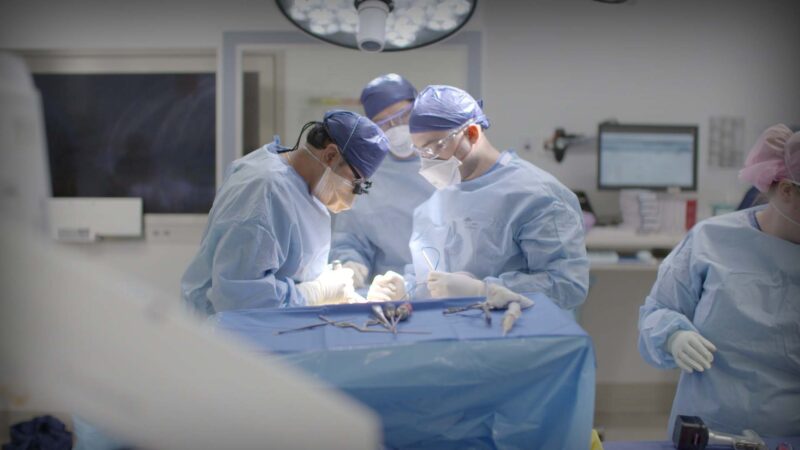Commencing a new series called Pioneers in Health Care, is an interview with Professor Jeremy Chapman AC who for over 30 years, has been involved in nephrectomy, or kidney transplantation.
Honoured “for eminent service to medicine, particularly in the areas of clinical and biomedical research, to the development of ethical policy and practices for organ donation, acquisition and transplantation, and to renal medicine organisations and publications, Jeremy Chapman AC has played significant roles in development of kidney, pancreas and unrelated Bone Marrow Transplantation in Australia.
He has been responsible for global development of ethical transplantation through The Transplantation Society, the World Marrow Donor Association and through advisory roles to the World Health Organisation. He is identified as one of the most influential global leaders in the field of clinical transplantation.
Credit: Australian Academy of Health and Medical Sciences
In September 2022, Western Sydney’s Professor Jeremy Chapman was bestowed the prestigious 2022 Medawar Prize on-stage in Buenos Aires, Argentina.
The Medawar Prize, awarded biennially since 1990 and named after Society co-founder Sir Peter Medawar, is globally recognised as the most prestigious award for excellence in Transplantation Science and Jeremy is “surprised and honoured” saying “not many people get this award so it’s a true delight”.
The award recognises outstanding investigators whose contributions have profoundly influenced organ transplantation.
Professor Chapman has dedicated much of his career to clinical care and research at Westmead, since commencing as a renal physician at Westmead Hospital in 1987. He has worked as Director of Western Renal Services, Westmead Hospital’s Director of Medicine and Cancer, as well as the Director of the Westmead Hospital Foundation, Chair of the Westmead Research Hub Council and member and deputy chair of the board of WSLHD.
In the early days of transplantation long-term care of transplant patients was mostly undertaken by transplant surgeons but as both the numbers and the complexity of transplantation increased, Professor Chapman was amongst the vanguard of renal physicians that focussed, as a physician, on care of patients after their transplant.
“It’s been an interesting road of discovery over time, but also a major transformation in the outcome for our patients,” Professor Chapman said.
“When I was first involved in 1978, we thought a 60% success rate at one year after a transplant was pretty good, even when choosing the very best patients to transplant, now, we would expect more than 90 or 95% success rates in much, much older and sicker patients.”
“Australia has been a great springboard for global activity, so it’s worked out very well to be working in Australia to impact on transplantation globally.”, according to Professor Chapman.
You Might also like
-
Student nurse placements in primary health care
With an urgent need to manage increasing rates of chronic disease, an ageing population, and a rapidly-ageing primary health care nurse workforce, Australia desperately needs more primary health care nurses to enter the workforce before the current generation retires and cannot pass on its skills.
Most nurses start their career in a hospital. Historically, it was difficult for universities and tertiary education providers to arrange placements for student nurses in primary health care. However, the APNA Student Nurse Placement Program provides student nurses with a foot in the door to a career in vibrant primary health care settings such as general practice or community health to perform supervised activities.
-
Belonging in a medical device company
Edith de Boer is the HR Director for Zimmer Biomet in Australia and New Zealand. Her career originally was in telecommunications and consulting in Europe. After leaving The Netherlands, Edith worked into the Australian medical research industry, before moving into a human resources role at Zimmer Biomet. Edith spoke to Australian Health Journal about her role and the organisation.
-
Jack Lancaster, Evolution Surgical
Continuing the Australian Health Journal, People In Health Care series is Jack Lancaster, the CEO of Evolution Surgical, an Australian owned company established in 2014, specialising in spinal fusion implants and custom instrumentation.
Jack talks about how the company works closely with surgeons to design custom solutions manufactured to surgical requirements, and ultimately, to the benefit of the Australia patient.



